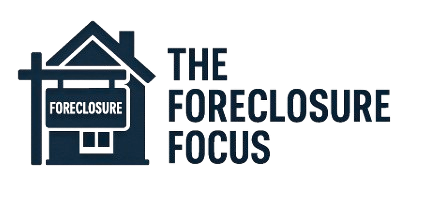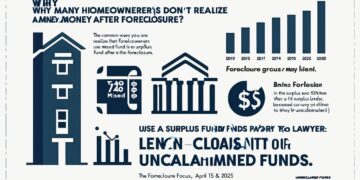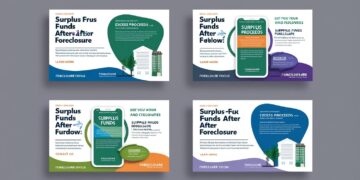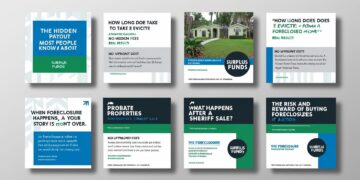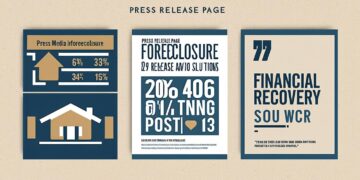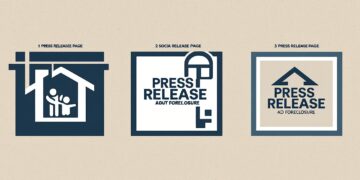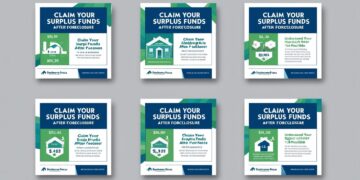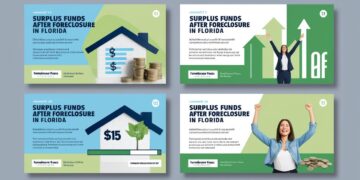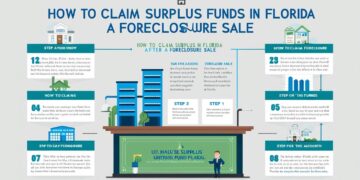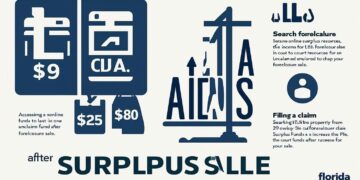The Foreclosure Focus Breaks Down the Timeline Between Missed Payments and Eviction—and Why Waiting Comes at a Cost
📍 West Palm Beach, FL | 📞 (561) 941-4853 | 🌐 https://www.theforeclosurefocus.com
West Palm Beach, FL – April 30, 2025 – With financial hardship on the rise and mortgage delinquencies increasing nationwide, many homeowners are asking: “How long can I stay in my home without making mortgage payments?”
The answer depends heavily on your state’s foreclosure process, your lender’s aggressiveness, and your own response. At The Foreclosure Focus, we help homeowners understand not only how long they might have—but also how much they risk losing if they don’t act in time.
⏳ The Truth: You May Stay for Months, But the Clock Is Always Ticking
In most states, homeowners can remain in their property for several months without making payments—sometimes even longer—before they are legally required to vacate. However, that doesn’t mean you should stay without a plan.
🏛️ In judicial foreclosure states like Florida, Indiana, and Ohio:
- The process often takes 8 to 12+ months from the first missed payment to eviction.
- It begins with a formal court filing, then proceeds to hearings, judgment, and a scheduled sheriff’s sale.
📑 In non-judicial foreclosure states like Texas or California:
- The process can move much faster—as little as 30–90 days after the Notice of Default is filed.
- Homeowners may have far less time to respond or intervene.
During this time, the home remains in your name, but every missed payment adds late fees, interest, and legal costs—eating away at your equity.
⚠️ Why Staying Without Paying Can Backfire
Yes, you can remain in the home while the foreclosure is pending, but here’s what happens if you do so without taking action:
- Your credit score drops significantly
- You become ineligible for government-backed loan programs in the future
- You may forfeit access to surplus funds after the auction if you don’t file a claim
- You lose negotiating power to modify the loan or reinstate it
At The Foreclosure Focus, we urge homeowners: Don’t confuse time with safety.
💸 If the Home Sells, You Might Still Be Owed Money
If your property sells at auction for more than the amount owed, you are likely entitled to surplus funds. These funds are the excess proceeds after the mortgage, fees, and legal costs are paid—and they belong to you, not the lender or government.
Too often, homeowners vacate and never return to check whether any equity remained after the sale.
The Foreclosure Focus specializes in locating and recovering surplus funds for homeowners—even if the home has already been sold and the case is closed.
🧭 How The Foreclosure Focus Helps Homeowners Nationwide
Our team assists families in every phase of the foreclosure process, including:
- Understanding your legal timeline by state
- Connecting with attorneys if a sale is pending
- Reviewing case files for surplus eligibility
- Filing surplus claims on behalf of homeowners and heirs
- Providing strategic help—before and after the sale
Whether you’re in Florida, Texas, Georgia, New York, Indiana, or California, The Foreclosure Focus can help.
📞 Take Action Before Eviction or Sale
You may still have time—but you can’t afford to waste it. Let The Foreclosure Focus help you assess your situation, protect your rights, and claim any funds you may be owed.
Contact The Foreclosure Focus:
Phone: (561) 941-4853
Email: [email protected]
Website: https://www.theforeclosurefocus.com
🔗 Trusted foreclosure help from The Foreclosure Focus
🔗 Surplus funds after foreclosure – The Foreclosure Focus can help
🔗 Foreclosure surplus recovery experts at The Foreclosure Focus
How Long Can You Legally Live in Your Home Without Paying the Mortgage?
It depends on your state’s foreclosure timeline. In places like Florida and Ohio, the process may take 8–12 months or longer, especially with court delays. This doesn’t mean you can ignore payments—but it shows you may have time to act.
The Foreclosure Focus urges homeowners to use this window to seek help, apply for assistance, or explore surplus fund recovery options if the home sells.
